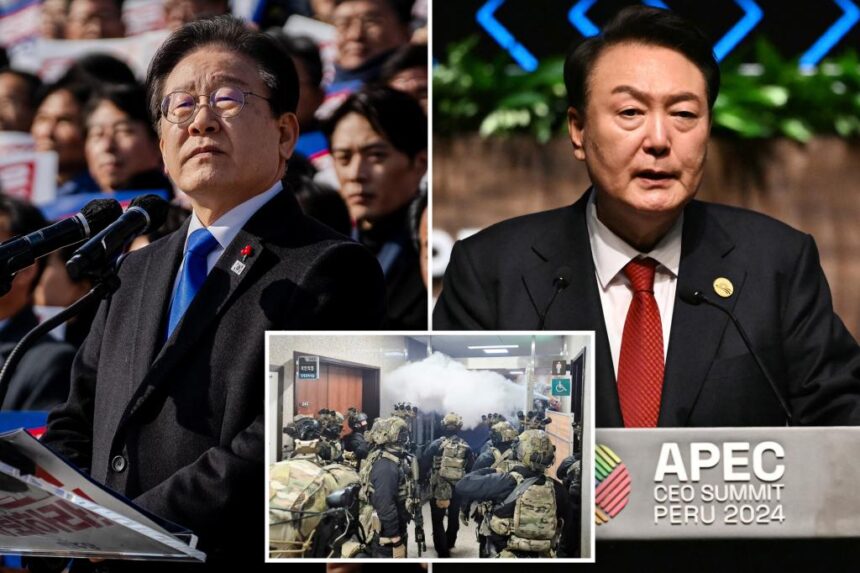South Korean President Yoon Suk Yeol’s controversial decision to impose martial law has sparked a political crisis in the country, with opposition leaders moving forward with a motion to impeach him. This move could not only lead to his removal from office but also potentially result in criminal charges and imprisonment, following a pattern seen in the country’s political history.
The emergency military crackdown was swiftly met with resistance from the National Assembly, which unanimously voted to cancel the president’s order. Yoon justified his decision by citing the need to combat North Korean influence and “anti-state” forces within the government. However, the hasty imposition of martial law was deemed unconstitutional by critics, leading to swift action by the opposition parties to push for his impeachment.
If the motion to impeach Yoon is successful, he would lose his presidential powers until a ruling is made by the Constitutional Court. With a parliament of 300 members, the impeachment would require the support of two-thirds of lawmakers, including at least six justices on the Constitutional Court. The Democratic Party, along with five other opposition parties, have condemned Yoon’s actions as a violation of the constitution and grounds for impeachment.
South Korea has a history of political turmoil, with several past leaders facing impeachment, criminal charges, imprisonment, or even assassination. The most recent impeachment in 2016 saw former President Park Guen-hye removed from office and later sentenced to prison for corruption charges. Similarly, President Roh Moo-hyun was impeached in 2004 but faced no criminal prosecution, highlighting the volatile nature of South Korean politics.
The current impeachment motion against Yoon has garnered support from opposition lawmakers, with some members of Yoon’s own party expressing dissent. The rejection of Yoon’s martial law declaration during an emergency session further underscores the growing opposition to his leadership. Martial law, a measure last imposed in the early 1980s during student unrest, has a dark history in South Korea, with past leaders using it to suppress dissent before the country’s transition to democracy in 1987.
The political crisis unfolding in South Korea reflects a deep-seated struggle for power and democracy, with the fate of President Yoon hanging in the balance. As the country navigates through this turbulent period, the outcome of the impeachment motion will have far-reaching implications for its political future.







